REGULATIONS FOR EFFICIENT RECYCLING
입력 2019.11.20 (15:08)
수정 2019.11.20 (16:46)
읽어주기 기능은 크롬기반의
브라우저에서만 사용하실 수 있습니다.
[Anchor Lead]
Eight out of ten plastic bottles produced in Korea are recycled. But only 10 percent of them are used as high-quality recycled materials. The government has decided to enact regulations increase the percentage of high value-added recycling by recycling transparent plastic bottles separately.
[Pkg]
Plastic bottles are transported to a recycling firm. The workers first sort them by color before removing impurities. This is done to sort out transparent bottles. Only 10 percent are transparent. The remaining ones can be re-used as cups, cotton or strings, but they cannot be used in apparel textiles, the most high-value added material. That's because they contain colored plastic and impurities that cannot be filtered out.
[Soundbite] MAENG SUNG-HO(KOREA PET BOTTLE RECYCLING ASSOCIATION) : "When white bottles for makgeolli are mixed in products, the defect rate increases."
Korean textile firms have no other choice but to use imported transparent plastic bottles. This company producing 500 tons of recycled textiles using discarded plastic bottles imports 100 percent of its raw materials from Japan. It can't use domestic plastic bottles because of the colors and all kinds of foreign substances, which can often damage factory equipment.
[Soundbite] CHO YONG-KU(STAFF AT TEXTILE COMPANY) : "In Korea, all kinds of plastic waste is sorted into one category. Textile companies cannot use them because of foreign substances mixed in them."
To address the problem, the government decided to enact regulations banning the manufacturing of colored plastic bottles and mandating that transparent bottles be separated from colored ones during recycling starting December 25. The use of labels attached to plastic bottles using regular adhesives will also be outlawed. The Environment ministry anticipates the move will help increase the amount of high-quality waste plastic bottles to 100,000 tons in the next three years.
Eight out of ten plastic bottles produced in Korea are recycled. But only 10 percent of them are used as high-quality recycled materials. The government has decided to enact regulations increase the percentage of high value-added recycling by recycling transparent plastic bottles separately.
[Pkg]
Plastic bottles are transported to a recycling firm. The workers first sort them by color before removing impurities. This is done to sort out transparent bottles. Only 10 percent are transparent. The remaining ones can be re-used as cups, cotton or strings, but they cannot be used in apparel textiles, the most high-value added material. That's because they contain colored plastic and impurities that cannot be filtered out.
[Soundbite] MAENG SUNG-HO(KOREA PET BOTTLE RECYCLING ASSOCIATION) : "When white bottles for makgeolli are mixed in products, the defect rate increases."
Korean textile firms have no other choice but to use imported transparent plastic bottles. This company producing 500 tons of recycled textiles using discarded plastic bottles imports 100 percent of its raw materials from Japan. It can't use domestic plastic bottles because of the colors and all kinds of foreign substances, which can often damage factory equipment.
[Soundbite] CHO YONG-KU(STAFF AT TEXTILE COMPANY) : "In Korea, all kinds of plastic waste is sorted into one category. Textile companies cannot use them because of foreign substances mixed in them."
To address the problem, the government decided to enact regulations banning the manufacturing of colored plastic bottles and mandating that transparent bottles be separated from colored ones during recycling starting December 25. The use of labels attached to plastic bottles using regular adhesives will also be outlawed. The Environment ministry anticipates the move will help increase the amount of high-quality waste plastic bottles to 100,000 tons in the next three years.
■ 제보하기
▷ 카카오톡 : 'KBS제보' 검색, 채널 추가
▷ 전화 : 02-781-1234, 4444
▷ 이메일 : kbs1234@kbs.co.kr
▷ 유튜브, 네이버, 카카오에서도 KBS뉴스를 구독해주세요!
- REGULATIONS FOR EFFICIENT RECYCLING
-
- 입력 2019-11-20 15:02:10
- 수정2019-11-20 16:46:02
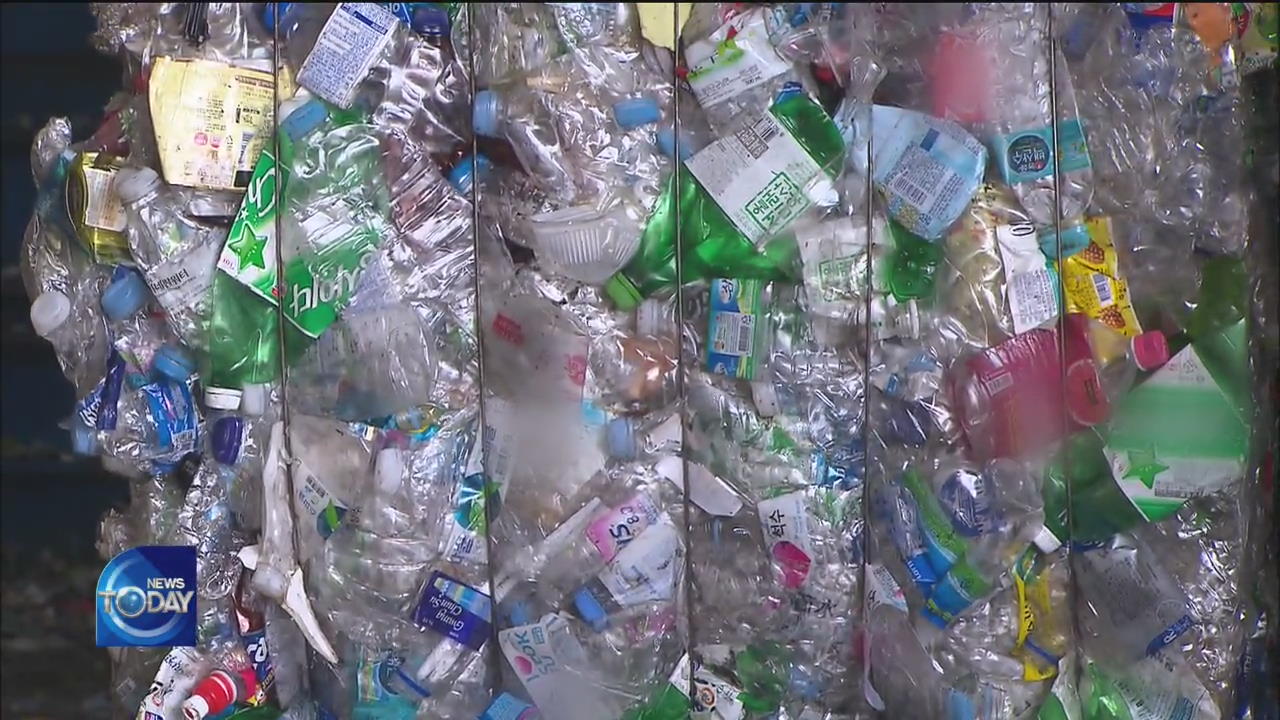
[Anchor Lead]
Eight out of ten plastic bottles produced in Korea are recycled. But only 10 percent of them are used as high-quality recycled materials. The government has decided to enact regulations increase the percentage of high value-added recycling by recycling transparent plastic bottles separately.
[Pkg]
Plastic bottles are transported to a recycling firm. The workers first sort them by color before removing impurities. This is done to sort out transparent bottles. Only 10 percent are transparent. The remaining ones can be re-used as cups, cotton or strings, but they cannot be used in apparel textiles, the most high-value added material. That's because they contain colored plastic and impurities that cannot be filtered out.
[Soundbite] MAENG SUNG-HO(KOREA PET BOTTLE RECYCLING ASSOCIATION) : "When white bottles for makgeolli are mixed in products, the defect rate increases."
Korean textile firms have no other choice but to use imported transparent plastic bottles. This company producing 500 tons of recycled textiles using discarded plastic bottles imports 100 percent of its raw materials from Japan. It can't use domestic plastic bottles because of the colors and all kinds of foreign substances, which can often damage factory equipment.
[Soundbite] CHO YONG-KU(STAFF AT TEXTILE COMPANY) : "In Korea, all kinds of plastic waste is sorted into one category. Textile companies cannot use them because of foreign substances mixed in them."
To address the problem, the government decided to enact regulations banning the manufacturing of colored plastic bottles and mandating that transparent bottles be separated from colored ones during recycling starting December 25. The use of labels attached to plastic bottles using regular adhesives will also be outlawed. The Environment ministry anticipates the move will help increase the amount of high-quality waste plastic bottles to 100,000 tons in the next three years.
Eight out of ten plastic bottles produced in Korea are recycled. But only 10 percent of them are used as high-quality recycled materials. The government has decided to enact regulations increase the percentage of high value-added recycling by recycling transparent plastic bottles separately.
[Pkg]
Plastic bottles are transported to a recycling firm. The workers first sort them by color before removing impurities. This is done to sort out transparent bottles. Only 10 percent are transparent. The remaining ones can be re-used as cups, cotton or strings, but they cannot be used in apparel textiles, the most high-value added material. That's because they contain colored plastic and impurities that cannot be filtered out.
[Soundbite] MAENG SUNG-HO(KOREA PET BOTTLE RECYCLING ASSOCIATION) : "When white bottles for makgeolli are mixed in products, the defect rate increases."
Korean textile firms have no other choice but to use imported transparent plastic bottles. This company producing 500 tons of recycled textiles using discarded plastic bottles imports 100 percent of its raw materials from Japan. It can't use domestic plastic bottles because of the colors and all kinds of foreign substances, which can often damage factory equipment.
[Soundbite] CHO YONG-KU(STAFF AT TEXTILE COMPANY) : "In Korea, all kinds of plastic waste is sorted into one category. Textile companies cannot use them because of foreign substances mixed in them."
To address the problem, the government decided to enact regulations banning the manufacturing of colored plastic bottles and mandating that transparent bottles be separated from colored ones during recycling starting December 25. The use of labels attached to plastic bottles using regular adhesives will also be outlawed. The Environment ministry anticipates the move will help increase the amount of high-quality waste plastic bottles to 100,000 tons in the next three years.
이 기사가 좋으셨다면
-
좋아요
0
-
응원해요
0
-
후속 원해요
0










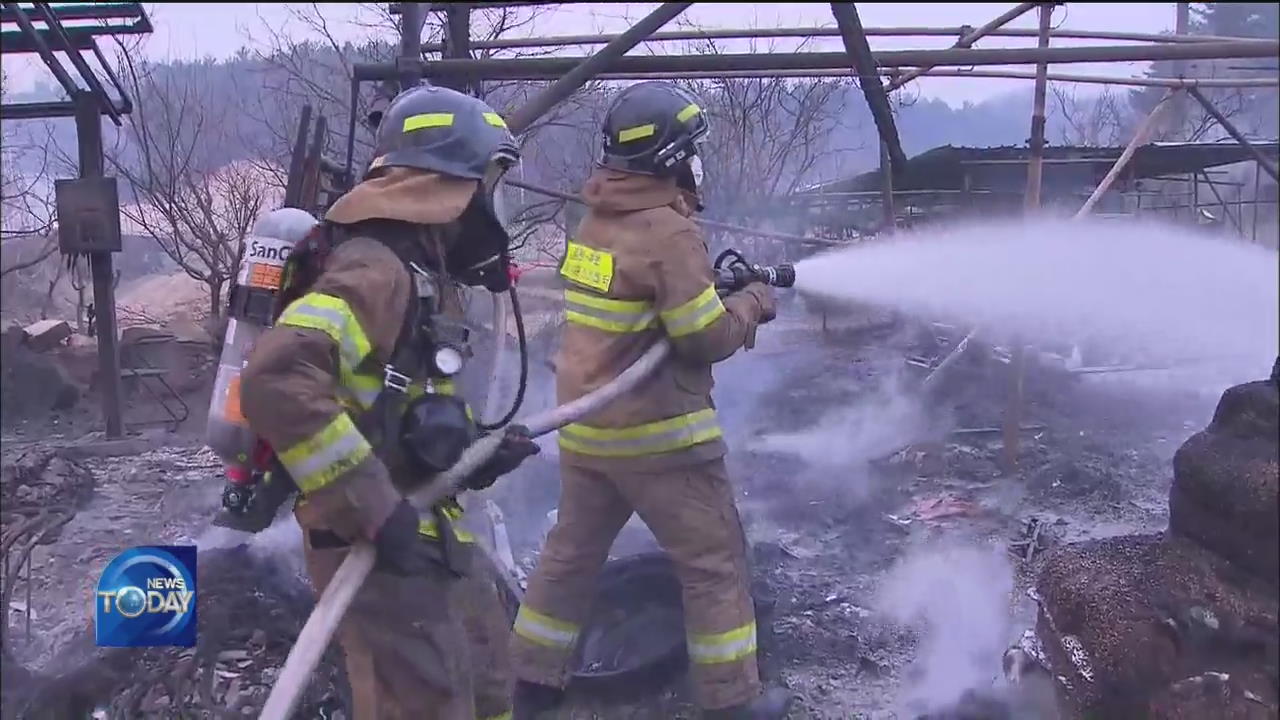
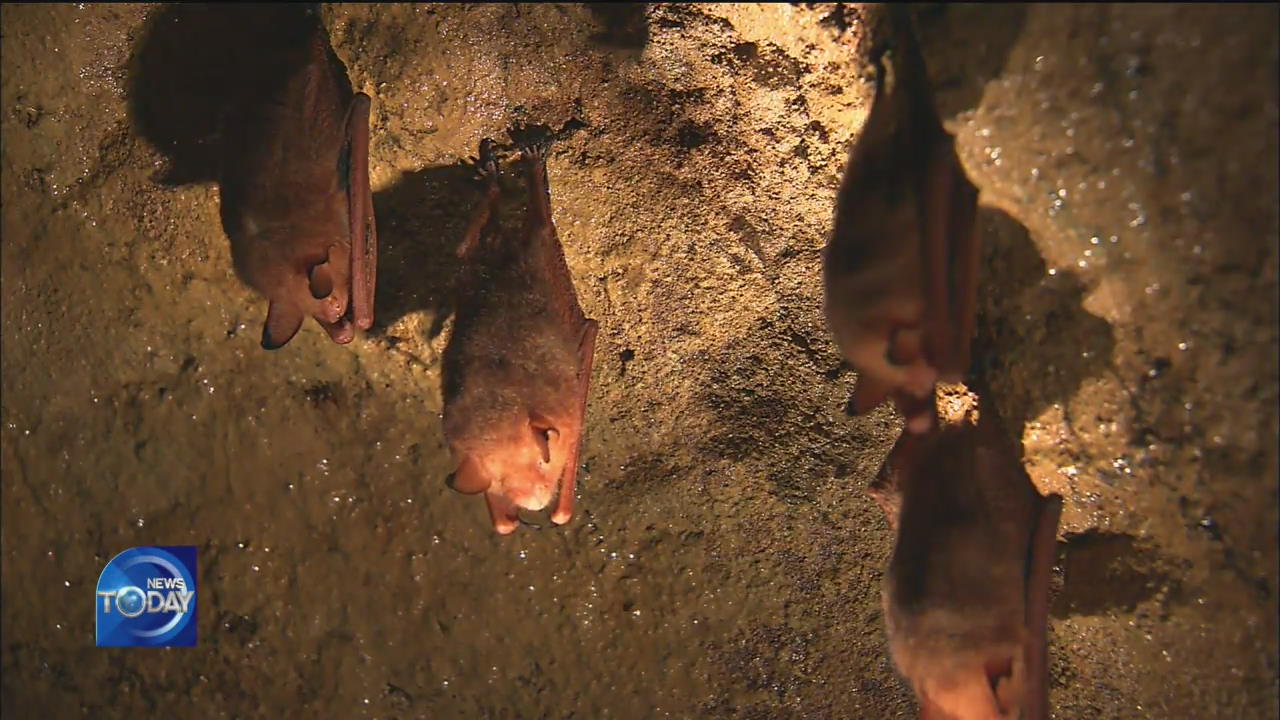
![[속보] 임성근 전 해병대 1사단장, 순직해병 특검 소환 조사 출석](/data/layer/904/2025/07/20250702_HwHh0G.jpg)
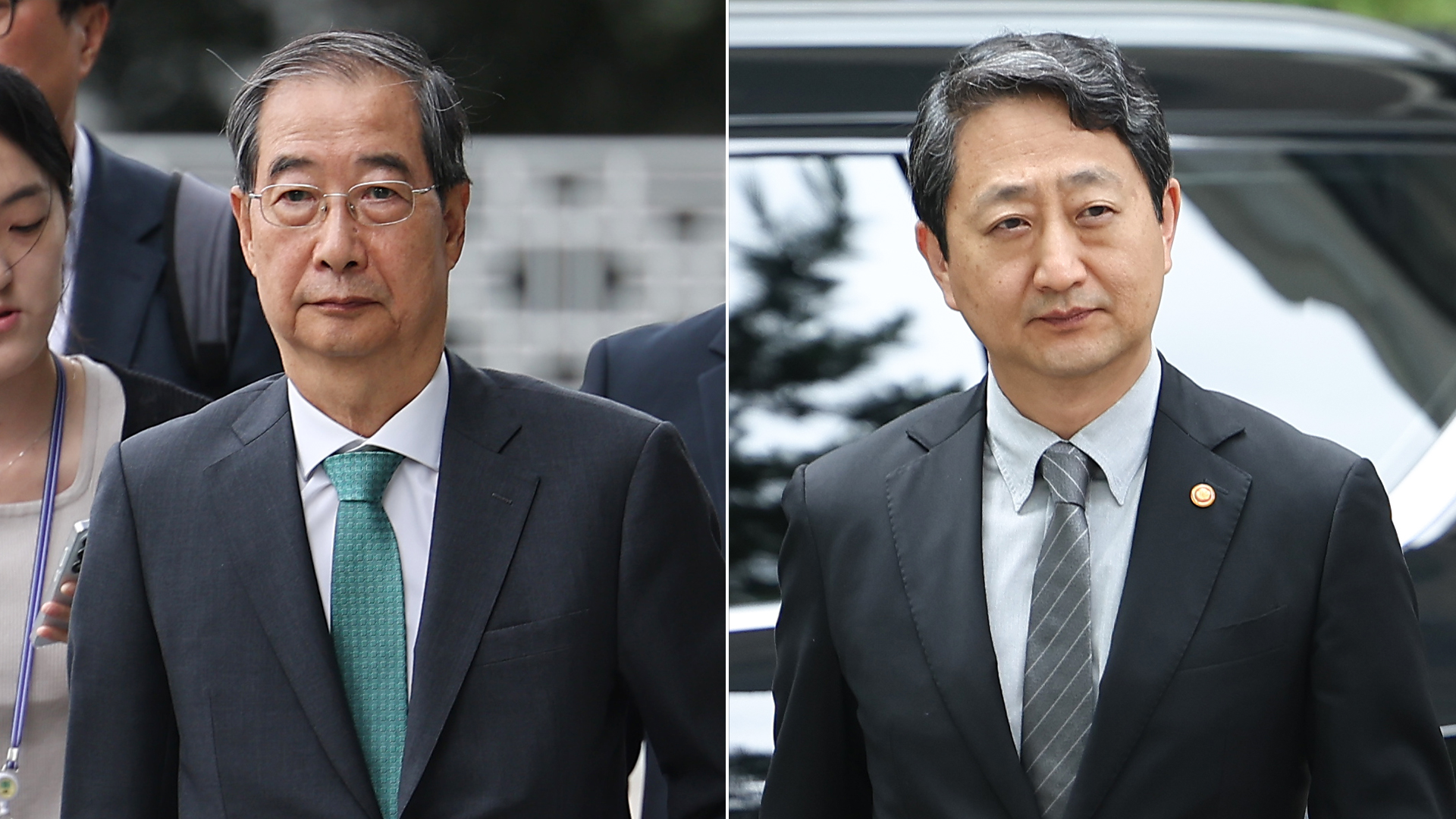
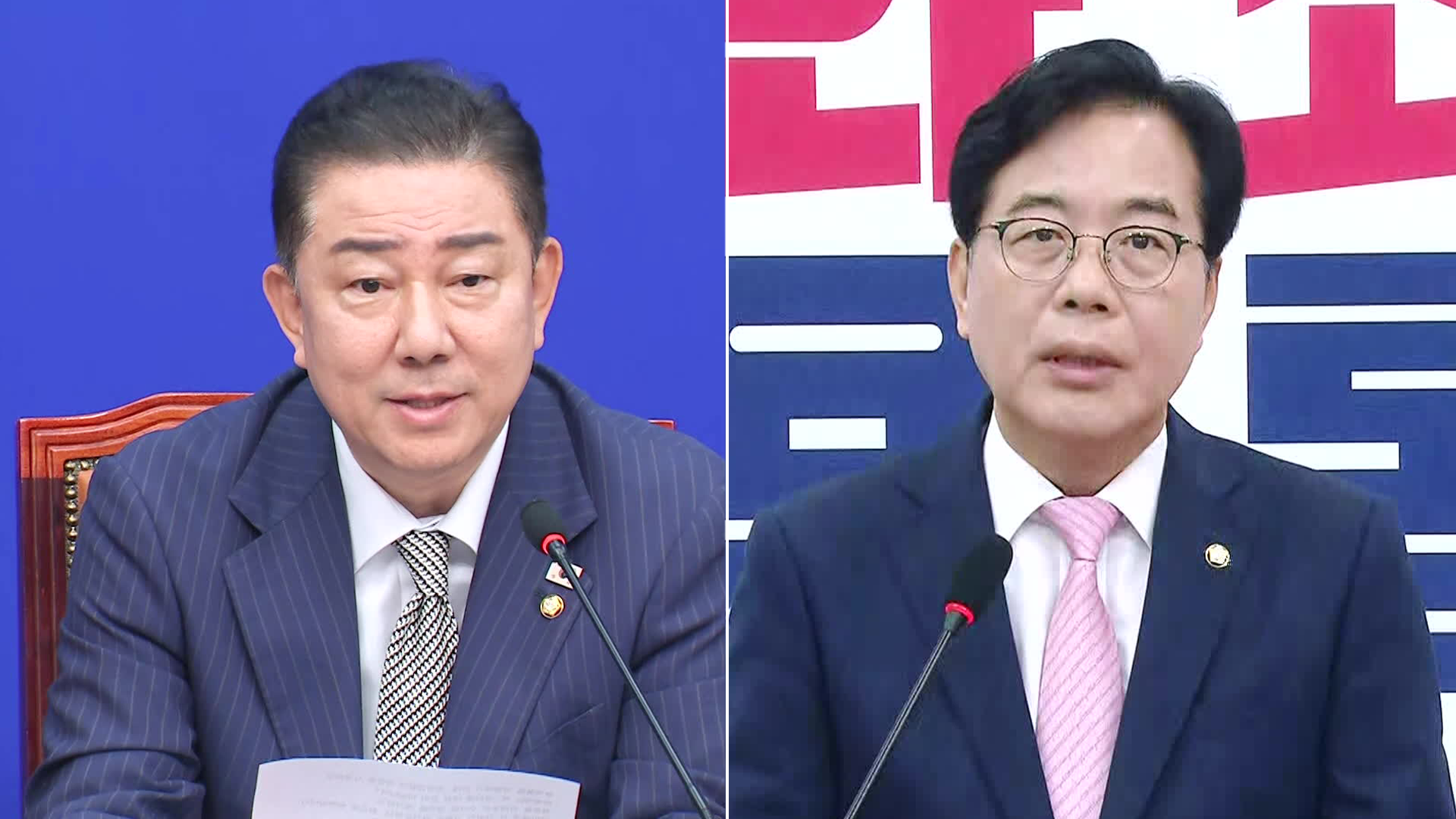
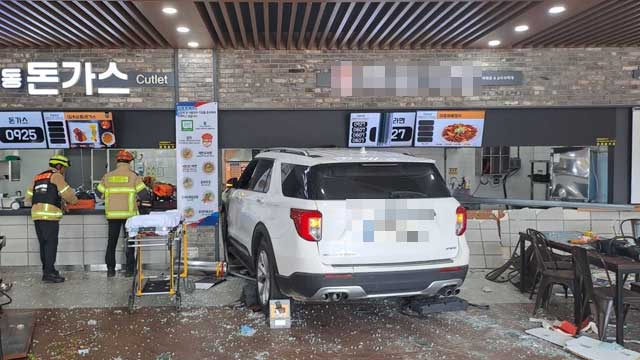

이 기사에 대한 의견을 남겨주세요.